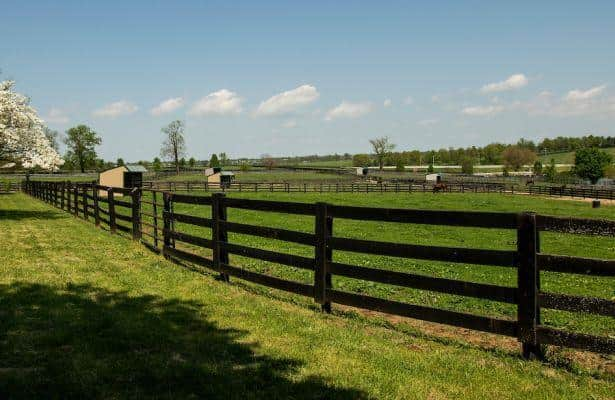‘Good job’: Study finds breeders protect Thoroughbreds’ health

A new study shows Thoroughbred breeders “have done a good job” in protecting the health of individual horses while preserving the breed’s athletic excellence.
The study was conducted by researchers from the University of Kentucky Martin-Gatton College of Agriculture, Food and Environment in collaboration with the University of Nebraska-Lincoln, University of Minnesota and University of California-Davis.
The most comprehensive study of North American Thoroughbred horses to date, it provides a baseline to understand how selection in the breed affected genetic diversity in the last five decades.
The study compared 82 horses born between 1965 and 1986 with 103 horses born between 2000 and 2020. Researchers identified more than 14 million genetic variations, finding that horses from the older generations carried slightly more genetic diversity and that horses in the younger generations showed modest increases in inbreeding.
One notable discovery was a 10% increase in the frequency of a genetic variant linked to the “speed gene,” which influences sprinting ability. This trend reflects a shift in breeding priorities toward shorter-distance races.
“DNA doesn’t lie,” said Ted Kalbfleisch, co-author of the study. “This change in the genome aligns with the growing popularity of shorter, faster races and demonstrates how breeding decisions leave measurable imprints on the genetic makeup of the breed.”
The researchers found no evidence that genetic factors have led to declining health and durability in Thoroughbreds. Researchers detected a slight rise in inbreeding in horses in the younger group but stressed that it isn’t inherently problematic.
“Inbreeding can help solidify positive traits, like speed or endurance,” Jessica Petersen, associate professor at the University of Nebraska-Lincoln Department of Animal Science, said. “However, it’s also important to monitor and avoid harmful genetic combinations. With tools like WGS, scientists can proactively identify and manage risks before they impact the breed.”
By identifying genetic risks, breeders might be able to test stallions and mares for harmful variants and adjust pairings to prevent inheritance. This approach protects the health of individual horses while preserving the breed’s athletic excellence.
“The data shows that breeders have done a good job,” said Ernest Bailey, lead author of the study. “Genomic tools make this clear at the DNA level but are unlikely to replace a breeder’s insights and intuition in the quest to create a better racehorse. However, these are precisely the tools we need to monitor and respond to hereditary problems that may arise.”
Related
Leading Parx jockey Sanchez will serve 7-day suspension
Photo: Jason Moran / Eclipse Sportswire Jockey Mychel Sanchez will serve a seven-day suspension and pay an additional $1,750 in fines
Bill Mott talks about plans for Sovereignty, Just F Y…
Photo: Gulfstream Park / Lauren King Sovereignty, dramatic late-running winner of the Fountain of Youth (G2) March 1, is being pointed
Up-and-coming Cavalieri chases Grade 1 glory in Beholder Mile
Photo: Santa Anita / Benoit Photo Cavalieri and Alpha Bella, who finished one-two in the Grade 3 La Cañada in January at Santa Anita,
4 stakes showcase shipping stars on Tampa Bay undercard
Photo: Gonzalo Anteliz Jr. / Eclipse Sportswire The stars will shine Saturday at Tampa Bay Downs, and not just in the Grade 3 Tampa Ba











